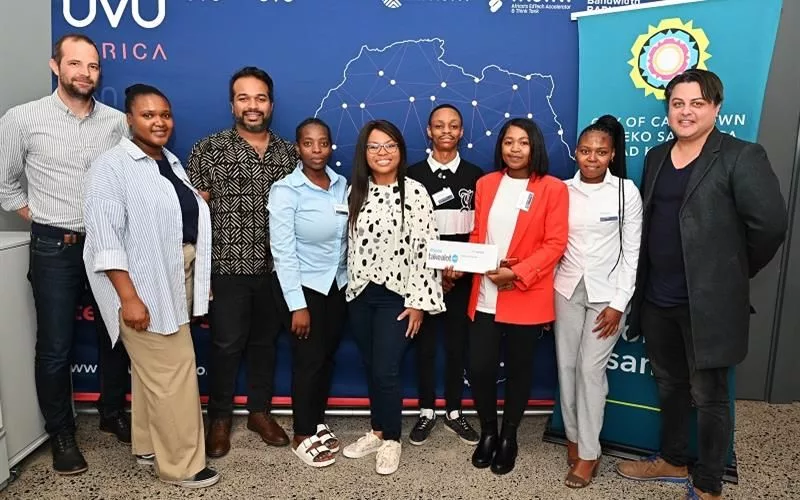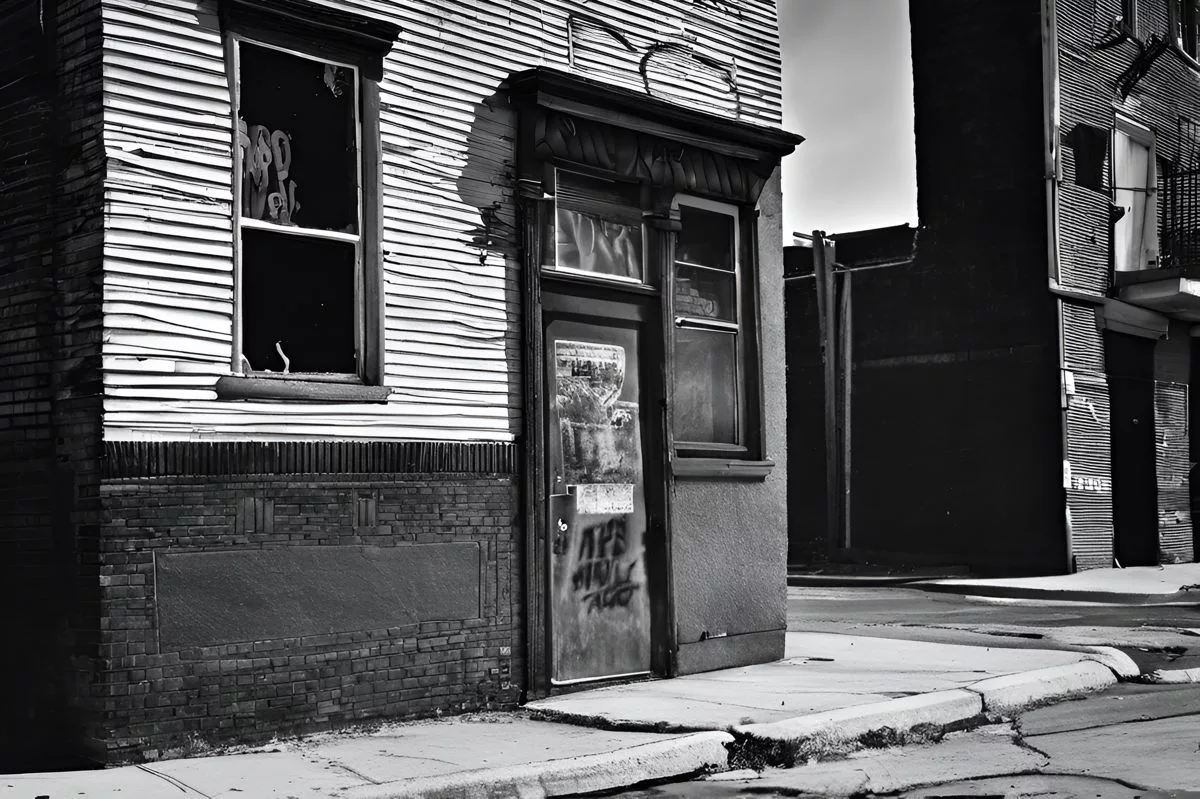Cape Town’s first Innovation Hackathon aimed to develop an “E-Public Participation Platform” for city residents, and the winning team created a user-friendly web-based application that facilitates job searches and provides updates on City projects. The event showcased exceptional skills and forward-looking insights, emphasizing the power of technology and young citizens in improving public services. The participants surprised judges with their solution-oriented applications, focusing on developing cost-effective, user-friendly software capable of efficiently retrieving information on projects, tenders, and job opportunities. The hackathon highlighted the dedication of UVU Africa and CAPACITI to fostering local talent to bridge the digital gap and showcased the candidates’ commendable skills and innovative thought processes.
In May 2024, Cape Town hosted its first-ever Innovation Hackathon, aimed at developing an “E-Public Participation Platform” for city residents. The award-winning tool created by the winning team, Oceans Five, is a user-friendly web-based application that facilitates job searches for residents and delivers updates on City projects. The event showcased exceptional skills and forward-looking insights, emphasizing the power of technology and young citizens in improving public services.
Section 1: An Exemplary Initiative
Cape Town’s first ever Innovation Hackathon, organized by the city’s Innovation and Customer Insights team, proved to be a remarkable success. This pioneering event gathered young individuals from various backgrounds, who tirelessly worked for a span of 24 hours at the UVU Africa offices in Woodstock, laser-focused on technological progress. Their task was a challenging one: to develop an “E-Public Participation Platform“, intended to enhance the ease with which city residents access public services.
Section 2: The Winning Team’s Exceptional Concept
The victorious group, fittingly dubbed Oceans Five, consisted of five participants from UVU Africa’s CAPACITI, an 18-month coding incubation program. Their award-winning idea was a user-friendly web-based application intended to facilitate job searches for residents and deliver updates on City projects. This ground-breaking tool primarily targets job-seekers, positioning the City’s platform as a premier resource for those in search of employment.
Oceans Five, under the leadership of team member Realeboga Matlakala, developed an application not only user-friendly but also rich in detailed information on ongoing City projects. Their team, including Nonzwakazi Mgxaji, Lissa Tshona, Thandokazi Notyalwa, and Kamohelo Filane, received a R5,000 Takealot voucher for their exceptional contribution. Their public participation software, coined Citi Builder, is now on the table for design and development by the City’s associates.
Section 3: Impressive Skills and Forward-Looking Insights
The hackathon highlighted the dedication of UVU Africa and CAPACITI to fostering local talent as a way to bridge the digital gap, as underscored by UVU Africa Group CEO, Ian Merrington. The event showcased the candidates’ commendable skills and innovative thought processes.
Dr Derek Davids from the Human Science’s Research Council (HSRC) stated that the knowledge gained from both the hackathon and the preceding workshops will profoundly impact the future design of public participation tools in the city and nationwide. He suggested that these digital platforms present fresh avenues for engaging communities and councillors, thus making public participation more accessible and impactful.
Section 4: Astonishing Solutions and Future Implications
After an exhausting 24-hour period of coding and planning, the young participants surprised the judges with their solution-oriented applications. Gareth Morgan, the City’s Executive Director for Future Planning and Resilience, noted that a number of presentations demonstrated a good understanding of how Artificial Intelligence (AI) could improve digital public participation platforms. There was a notable focus on developing cost-effective, user-friendly software, both offline and online, capable of efficiently retrieving information on projects, tenders, and job opportunities.
The hackathon saw the participation of seven teams, each of which showcased their Most Viable Products (MVPs) on Friday, 17 May 2024, to a four-member judging panel. This panel included Bridgette Morris, the Innovation and Customer Insights Manager from the City, HSRC’s Senior Research Manager Dr Paul Plantinga, UVU Africa’s Head of IT Chesarae Pillay, and the City’s Digital Communications Manager, Justin Lawrence.
Cape Town’s inaugural Innovation Hackathon was an absolute festivity of innovation, invention, and civic participation. It underscored how cities can harness the power of technology and the talents of their young citizens to improve public services, thereby enhancing the overall quality of life for their residents. As the city anticipates future iterations of the hackathon, one thing is unquestionable: the prospect of transforming public service through technology is vast and thrilling.
1. What was Cape Town’s first Innovation Hackathon?
Cape Town’s first Innovation Hackathon was an event organized by the city’s Innovation and Customer Insights team in May 2024. The event aimed to develop an “E-Public Participation Platform” to make public services more accessible to city residents.
2. What was the winning team’s concept?
The winning team, Oceans Five, created a user-friendly web-based application called Citi Builder. This application facilitates job searches for city residents and provides updates on City projects. The tool primarily targets job-seekers, positioning the City’s platform as a premier resource for those in search of employment.
3. How did the hackathon highlight local talent and bridge the digital gap?
The hackathon showcased the dedication of UVU Africa and CAPACITI to fostering local talent and bridging the digital gap. The event emphasized the skills and innovative thought processes of young participants from various backgrounds. The knowledge gained from the hackathon will profoundly impact the future design of public participation tools in the city and nationwide.
4. What were the participants’ solutions and future implications?
The participants surprised the judges with their solution-oriented applications, focusing on developing cost-effective, user-friendly software capable of efficiently retrieving information on projects, tenders, and job opportunities. The hackathon underscored how cities can harness the power of technology and young citizens to improve public services, enhancing the overall quality of life for residents.
5. Who were the judges for the hackathon?
The four-member judging panel for the hackathon included Bridgette Morris, the Innovation and Customer Insights Manager from the City, HSRC’s Senior Research Manager Dr Paul Plantinga, UVU Africa’s Head of IT Chesarae Pillay, and the City’s Digital Communications Manager, Justin Lawrence.
6. What is the future of public service delivery in Cape Town?
The inaugural Innovation Hackathon in Cape Town highlighted the vast and thrilling prospect of transforming public service through technology. The event showcased exceptional skills and forward-looking insights, and the city anticipates future iterations of the hackathon to further enhance public services.












